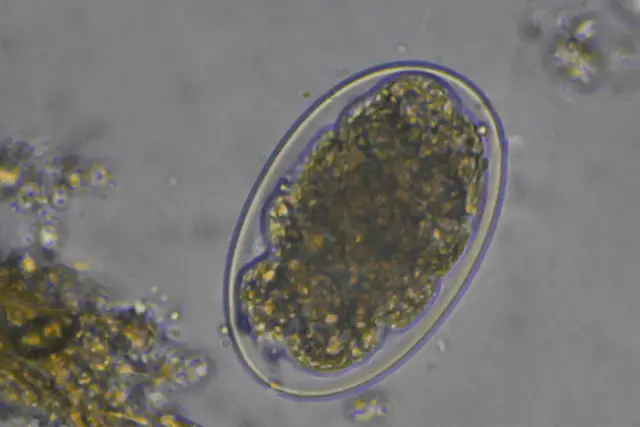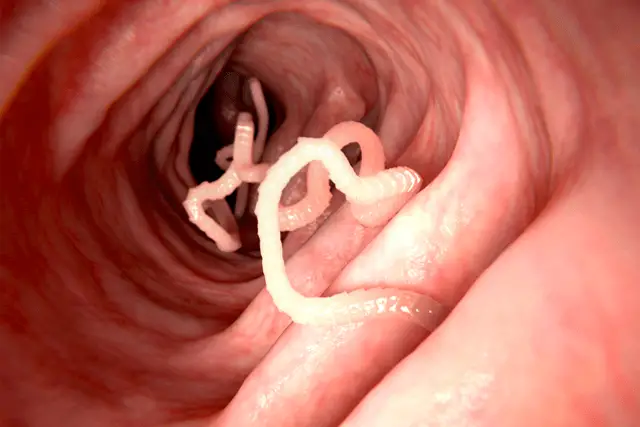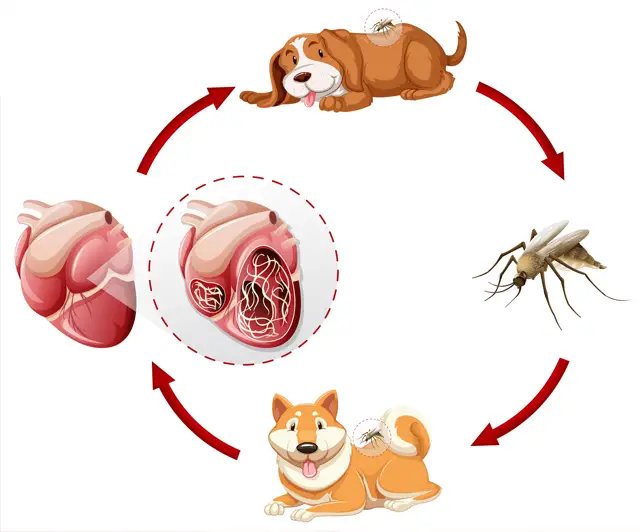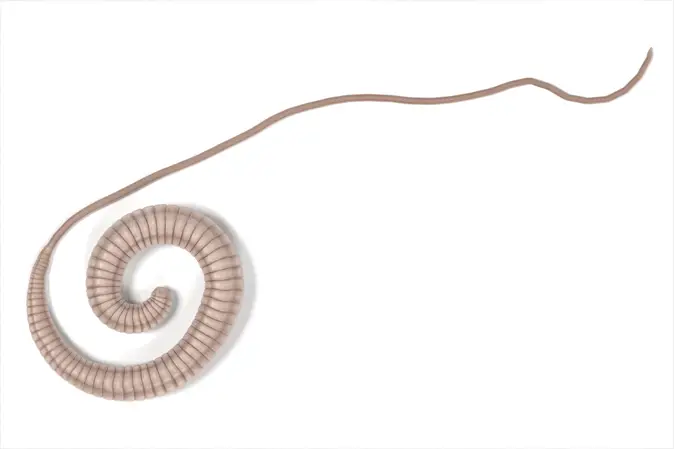Worms in Dogs: How They Get Them
08.03.2021.
When a new dog owner hears that all puppies are born with worms, they are usually mildly shocked. It can be unnerving to find out such stomach-turning information, but it is nevertheless true. Puppies have parasites from the moment day are born, and luckily for us, vets know that and know how to effectively deal with that. If you are worried about your puppy’s health, here is what you should know about worms in dogs and puppies.
How do dogs get worms?
There are many different ways dogs can get infected with parasites. Not all worms in dogs are the same, nor do they have the same living cycles. Some types of worms can survive only in their hosts’ bodies, and they have limited environmental survivability. Others can stay on the ground longer and can infect the unsuspecting dog that is eating grass.
Some worms are transmitted from mothers to puppies as soon as puppies start nursing. Whatever the type of worm that infected your dog, there are plenty of medications that can get rid of them. Here are the most common worms in dogs;
Roundworms

Roundworms are the first type of worm in puppies. They get them from drinking their mother’s milk. It is the most common intestinal parasite found in dogs, which isn’t surprising since puppies get them as soon as they are born. There are two types of roundworms in dogs: Toxascaris leonina and Toxocara canis. The T. canis can infect humans as well. These worms can be spotted by seeing spaghetti-like substances in the dog’s feces.
How to deal with these worms in dogs?
According to PetMD, the best way to get rid of roundworms in dogs is to treat the dog with medicine like fenbendazole, milbemycin, moxidectin, piperazine, and pyrantel. The vet will prescribe three doses, and the adult worms will be killed.
Other than worms, there are other parasites that can infect your dog. Check out this article - Giardia in dogs.
Hookworms in dogs

Hookworms in dogs can be considered relatively dangerous, especially if they are left untreated. These worms in dogs can cause anemia, lethargy and can be fatal to puppies. This parasite can also be transmitted from mothers to puppies, so the nursing dog must be adequately wormed.
What to do about them?
According to VCA, there are several effective medications called anthelmintics that can effectively and quickly get rid of hookworms in dogs. However, these meds will only kill adult worms, so the vet will tell you to treat the dog again in about two weeks when the unhatched worms will develop.
Tapeworms in dogs

Tapeworms are one of the most common parasites in dogs in the US. The dog can get infected if they eat an infected flea or an infected rodent that already has a tapeworm. It is vital to keep your dog safe from fleas and not allow them to eat rodents that have been killed. This parasite will leave tiny bits of worms in dog poop. That is the way they can leave their larvae in the environment.
What to do about them?
The best way to treat tapeworms in dogs is by praziquantel. It will effectively get rid of tapeworms in dogs, but there is a catch. You need to follow through with the treatment until all the medicine dosages are used.
Heartworms in dogs

The most dangerous types of worms in dogs are heartworms. The worst thing is - they are totally preventable, but some owners forget about keeping their dogs safe from worms. Vets recommend using heartworm preventatives regularly, and that is the best way to prevent them from ever infecting your dog. They can cause all sorts of health issues to your dog. These types of worms in dogs usually stay in the heart and lungs.
What to do about them?
The best medicine is prevention. If you give your dog heartworm preventatives, they can be relatively safe and heartworm-free. The treatment is painful and lasts a long time. IT is not always effective, and if the dog is heavily infected, the consequences can be tragic.
One of the parasites that can infect a dog is coccidia. Here is what you need to know about it - Coccidia in dogs.
Whipworms in dogs

These parasites live at the beginning of the large intestine. That part is called the cecum. They can also live in the colon. These worms in dogs will pass their eggs in the dog’s feces, which is their way of reproducing. Dogs can get infected with these worms by eating something that contains the whipworm larvae. That can include soil, feces, dead animals, food, or water.
What to do about them?
The best way to prevent your dog from getting infected is to prevent them from eating things they come across. There can be worms in dog poop, and you should forbid your dog from eating it. According to vets at McCleary Animal Hospital, different medications can effectively eliminate whipworms in dogs. These medications are febantel, fenbendazole, milbemycin, moxidectin, and oxantel.
Check out this article for the most effective ways to treat and prevent worms in dogs - Best dog dewormers.
Signs of worms in dogs
The best way to ensure the infected dog has an effective worm treatment is to spot the symptoms of worms in dogs early. That can be tricky because not all owners know what symptoms of worms in dogs look like. Even the most experienced owners can miss some of the signs of worms in dogs, so don’t beat yourself up if you missed some too. Your vet should help you and if you suspect anything is wrong with your dog, take them for a check-up. Some of the most common signs of worms in dogs include:
- Parts of worms in dog poop or vomit
- Diarrhea
- Weight loss
- Vomiting
- Overall weakness
- Depression
- Swollen stomach or abdomen
- Coughing
World Dog Finder team







Share